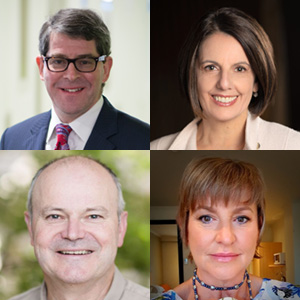The latest edition of the Proceedings of the Royal Society of Victoria is now online, featuring a new species of calcareous sponge discovered in Geelong, a spectacular new H5 meteorite in Maryborough, an account of Indigenous meteorological knowledge using stellar scintillation, a reclassification of fossil graptolites from the early Bendigonian, a case for regulated investment in a resilient electricity network, an account of the Bureau of Meteorology’s new extreme heatwave event forecasting service, and a discussion on whether a similar service might be required for cold extremes.
As those registered to participate in the Australian Marriage Law Postal Survey receive and return their forms over the coming weeks, the Executive Committee and Council of the Royal Society of Victoria wishes to express and explain its support for marriage equality in Australia, acknowledging there will be a plurality of views on this matter within our broad membership.
Many are questioning why legislation recognising the rights of couples from the same gender to marry is legally required. We’ve examined the matter carefully and this position paper presents our conclusions.
Review by by Helen Gardiner van de Pol
As science communicators, we are always being asked to evaluate our activities and demonstrate impact. Teachers know this well. How do you know which part of what program helped form the adult you see before you today? That science outreach event you planned for 8-9-year-olds some 20 years ago, did it impact those children as intended? Did it contribute to their later decision to choose a career in science? Did it make them more scientifically literate even though they grew up to do art? If we interviewed them today, would they correctly recall your wonderful program and describe how it changed their life or would it just be part of a fog of memories which included fun trips to the museum with their favourite aunt who was a scientist?








